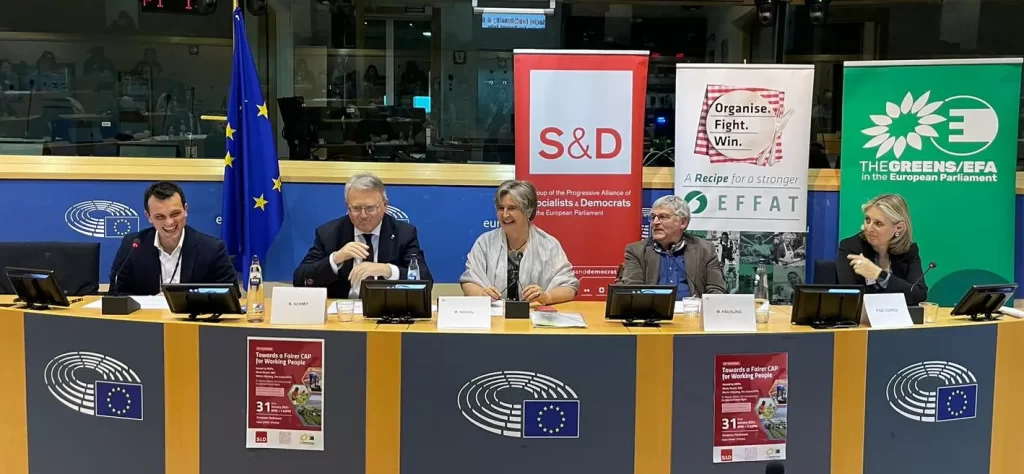Ahead of the EU elections and the next Common Agricultural Policy (CAP) reform, EFFAT IUF-Europe recently organized a hearing supported by MEP Maria Noichl and MEP Martin Häusling. As farmers’ protests opposing the EU Green Deal are sweeping across Europe, EFFAT presented its vision for a fairer CAP and drew a red-line: agricultural workers’ working conditions are not negotiable and must be improved during the next CAP reform through a further strengthening of Social Conditionality.
Despite the success of the Social Conditionality in 2021, the reality remains that agricultural work continues to be one of the most insecure, poorly compensated, and hardest occupations in Europe. The lived experiences of nearly 4 million agricultural workers are characterized by struggles, deprivation, and labour abuse. With A Call to a Fairer CAP, EFFAT urges the next EU to accelerate efforts to ensure that Social Conditionality is not just policy but also practice.
EFFAT’s vision emphasizes:
- Strengthening Social Conditionality through a robust system of increased sanctions and inspections to ensure its effective implementation
- Broadening the criteria for the allocation of direct payments, including the level and quality of employment to promote growth and good employment in rural areas
- Introducing the provision of CAP-funded education and training programs for agricultural workers
Kristjan Bragason, EFFAT-IUF Europe General Secretary, stated, “If farmers are struggling, farm workers’ conditions are unbearable. A fairer CAP must solve the imbalances of the food chain: the disproportionate concentration of powers with some actors reaping profits and vulnerable farm workers paying the price.”
